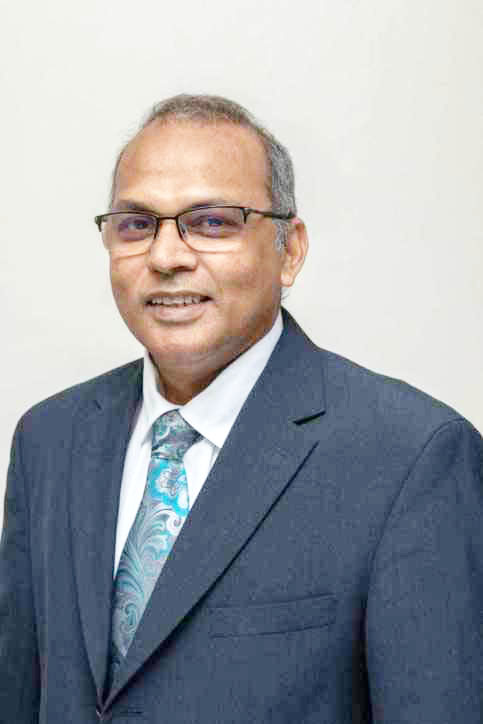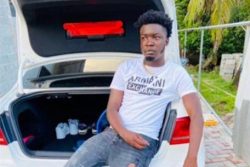A protocol for the 80,000 AstraZeneca COVID-19 vaccines scheduled to arrive here from India this week will see remaining frontline workers being inoculated and the pension collection data bank of the National Insurance Scheme and the Ministry of Social Protection, among other measures being used to identify persons in high risk groups
Minister of Health Dr Frank Anthony yesterday told Stabroek News that with nearly all of the 3,000 vaccines donated by Barbados already administered to healthcare front line workers, 3,000 doses from the imminent shipment will be reserved to complete their double-dose treatment.
However, he explained that with research revealing that the efficacy levels increase when the second jab is taken about four weeks after the first dose, the Ministry of Health is mulling using this interval.
“There are a couple we have to complete (from) the health care workers. The 3,000 that was received, we administered most of that. So by now, nearly 3,000 persons would have received their first dose. We will continue to complete that and continue with healthcare. Then, we look at elderly and people with higher risk,” the Health Minister said.
“We will work with the Ministry of Social Services because they have a data bank of pensioners. We are using the information from there to have the people who are of pensionable age take their first shots. And then there are the homes for the elderly, the Palms etcetera, because they are institutional sites the medical teams can easily get to them to distribute those vaccines,” he added.
Anthony explained that the vaccine rollout is expected to go smoothly as there are some 35 healthcare teams that will be responsible for vaccinating persons identified in the various categories.
Co-morbidities
When we look at co-morbidities; most of those patients would have come to one of our facilities across the country or the local private hospitals so we will have that information as well as we begin rolling out. In all ten regions we have teams trained so there is also that,” he assured.
Anthony said that it is anticipated that by the time the 102,000 doses from the World Health Organization’s (WHO) COVAX programme gets here, the persons now receiving from the 80,000 tranche will get their second dose.
But he underscored the importance of increasing the interval between the two shots as WHO research shows that it would be best to wait at least four weeks.
“We are going to increase the interval between the two shots because they showed that if the time between the first and second is 4 weeks the efficacy is about 62 percent. But when you do it at 12 weeks between the vaccines efficacy goes up to 82% , according to the expert group of the WHO,” the minister said.
“This expert body had these findings and they recommended to the WHO that it is should be longer than 4 weeks between the first and second dose. We want to ensure the efficacy is higher and will increase the time interval,” he added.
He said that the WHO has not yet given a definitive date for that batch of vaccines as it was still being finalized.
Last Friday, Anthony announced that this country is expected to receive a donation of 80,000 doses of the AstraZeneca vaccine for COVID-19 from the Government of India.
Indian High Commissioner to Guyana Dr. K. J. Srinivasa had stated that the donation by the government of India will be the same AstraZeneca vaccines produced by the Serum Institute which has recently been approved by the WHO.
“You would all recall that Barbados sent 3,000 vaccines from its quota, which was actually sent by India again. Out of the 100,000 sent to Barbados, they then sent 3,000 across to Guyana but now Guyana will have its own 80, 000,” the High Commissioner said.
He further noted that the two governments will collaborate in the event that Guyana would want more vaccines on a commercial basis. This, he said, will also be facilitated through the Serum Institute.
Dr Srinivasa during the meeting with the health minister stated that the Institute hopes to produce about 650 million doses of the vaccine by July/ August of this year.
Anthony said that while the COVAX facility is trying to coordinate the global effort for most countries, there has been some level of selfishness, which has put the facility in jeopardy sometimes.
The Health Minister also explained that the WHO has not yet said if the Pfizer–BioNTech COVID-19 vaccine, BNT162b2 will be among the batch of vaccines Guyana receives.
“They have not given us a date as yet or finalized which vaccines. The Pfizer vaccine? I am not sure but that might be a possibility, But like I said, they haven’t confirmed if we will get that or not,” he said.





